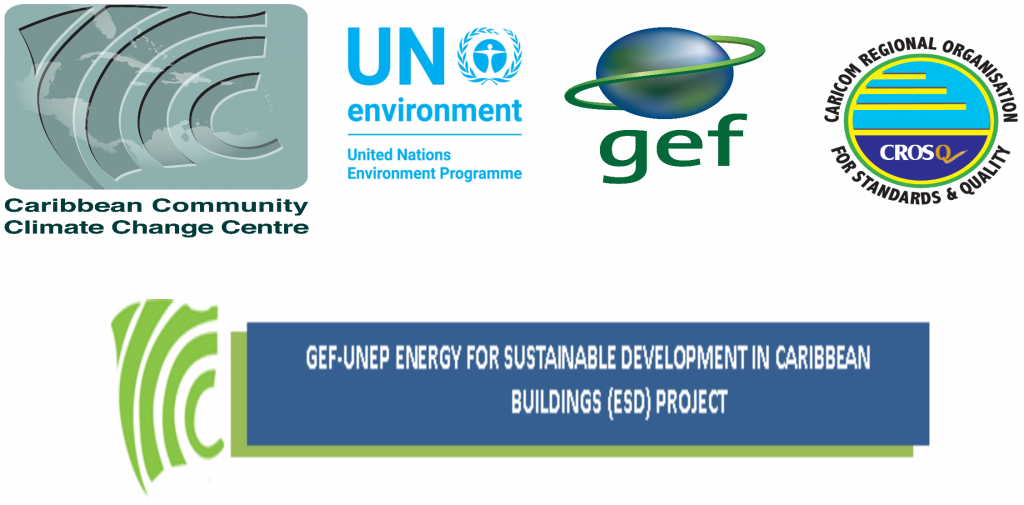Project Summary
The Energy for Sustainable Development in Caribbean Building Project (ESD) was implemented in collaboration with the CARICOM Community Centre for Climate Change (CCCCC).
Funded by the Global Environment Facility – Least Developed Countries Fund |UNDP, the project strived to develop and support the adoption and application of the Regional Energy Efficiency Building Code (REEBC), and Minimum Energy Performance Standards (MEPS) and Energy Standards and Labelling (ES&L) for Electrical Appliances in five member states. These included Antigua & Barbuda, Belize, Grenada, Saint Lucia and St. Vincent and the Grenadines.
Project Outcomes
- 50+ industry practitioners, including engineers, and architects, building officials, contractors, inspectors, were trained in the provisions of the CREEBC.
- Training was conducted in the Energy Efficiency Labelling Standards, allowing for better understanding of the provisions and requirements
- Stakeholders were sensitisation through a two-day training on the Harmonized Energy Efficiency Labelling Standards and a webinar on the Regional Energy Efficiency Labelling Scheme.
- Consumers in supported labelling scheme piloting countries, namely Belize and Saint Lucia, were sensitised about the labels, through the creation of a jingle and animation. Both jingle and animation were aired in the countries on radio and television, as well as streamed via social media across the region.
- Licensing Agreement established between CROSQ and the International Code Council for the publishing of the CARICOM Energy Efficiency Building Code
Participating Agencies
- European Union Environment Programme’s Global Environment Facility
- Caribbean Community Climate Change Centre (CCCCC)
- CROSQ Network bureaux, including Antigua and Barbuda Bureau of Standards; Belize Bureau of Standards; Grenada Bureau of Standards, Saint Lucia Bureau of Standards, and St Vincent and the Grenadines Bureau of Standards

